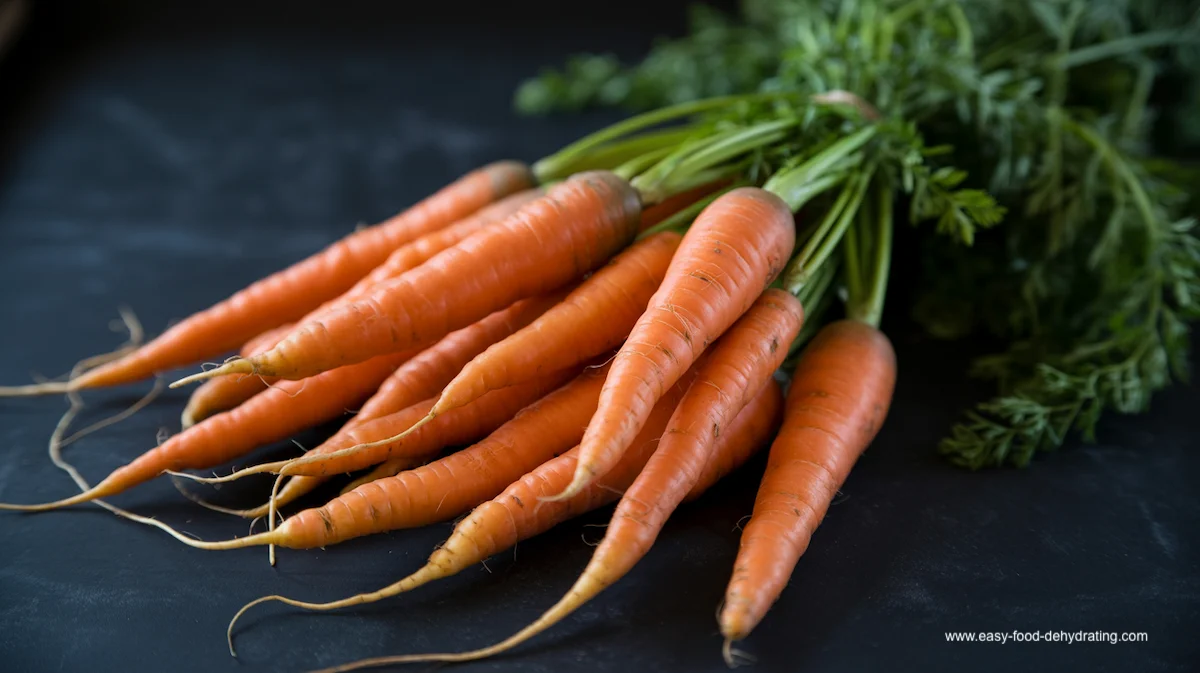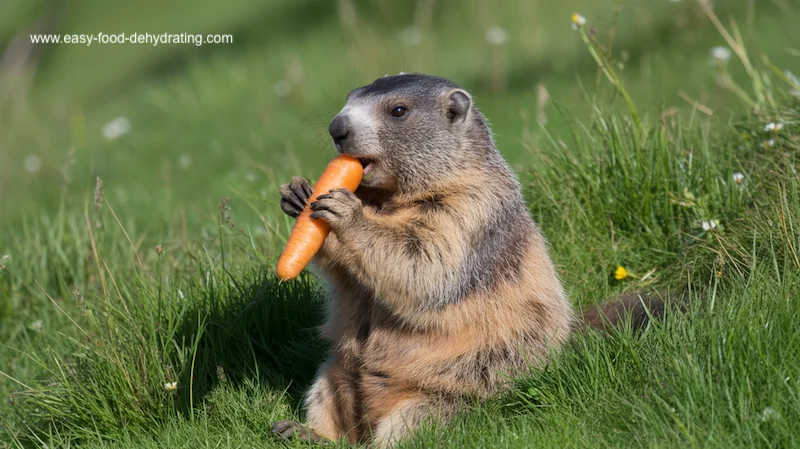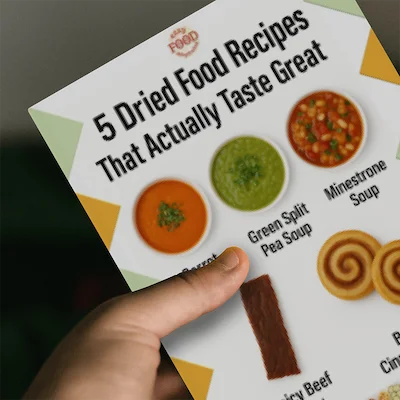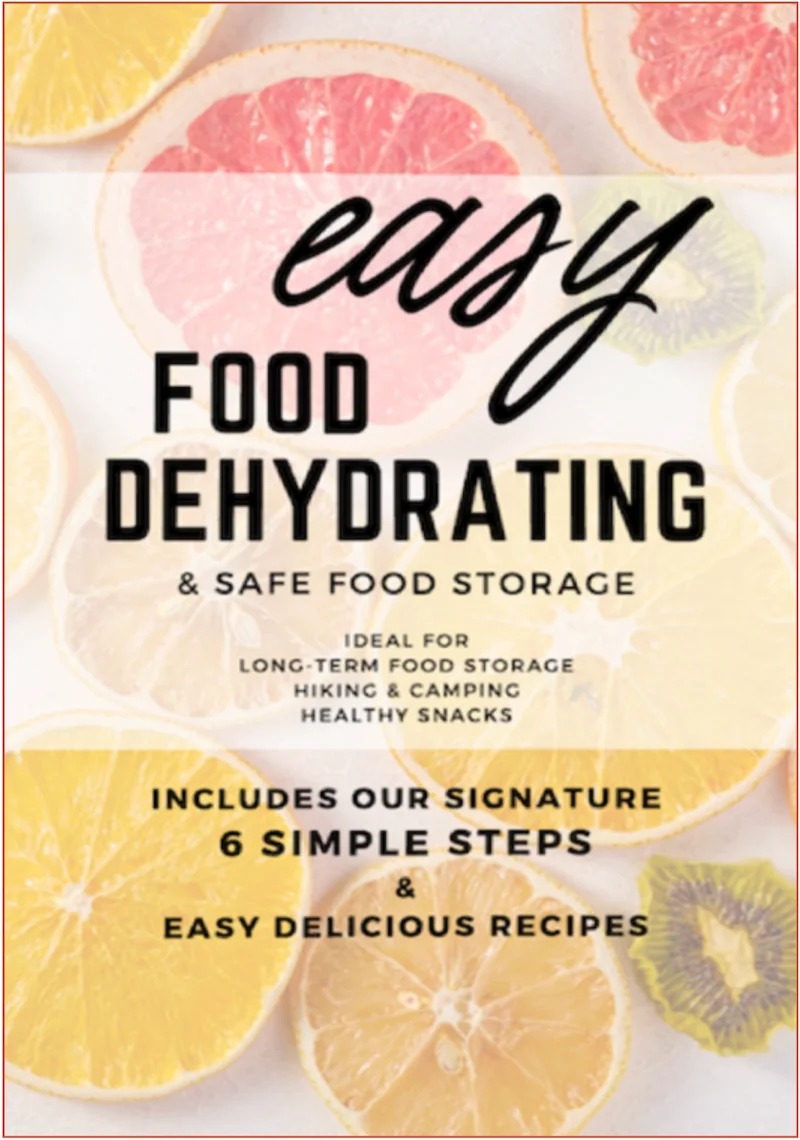What We Mean by “Dehydrate”
Here at Easy Food Dehydrating, “dehydrate” always means using an electric food dehydrator — the easy, reliable way to dry food at home.
- Home
- Articles On How To Dehydrate Food Safely
- Interesting Facts About Carrots
Interesting Facts About Carrots
Here are some interesting facts about carrots and it's a guest post by Jason of Gardenlife Pro.
Guest Post by Jason of Gardenlife Pro

Carrots are one of the best-loved veggies around, popular for school lunches, and a staple ingredient in many recipes.
As an excellent source of fiber, vitamins A and C, potassium, and calcium, carrots also boast a natural sugar content that is higher than most other vegetables, making them a tasty snack.
Carrots are root vegetables and mature underground in the cool soil during the spring and summer. They are easy to grow, easy to store, and fun to eat!
Marmot Munching on Carrots...

This is a marmot enjoying a carrot. What’s a marmot?
A marmot is a large ground-dwelling squirrel found in the mountains of North America, Europe, and Asia.Quick Marmot Facts
- Stocky, short-tailed herbivores weighing up to 15 pounds
- Live in alpine meadows and hibernate 6–8 months a year
- Around 15 species exist, including the woodchuck (groundhog)
- Eat grasses, berries, and plants near their burrows
- Highly social with complex warning calls
Carrots are Good Fer Yer Eyes

Look at Me!
Many of us have heard the remark that carrots are good for eyesight because, “Have you ever seen a rabbit wearing glasses?”
In fact, the high beta-carotene levels in carrots convert into vitamin A and help promote healthy vision.
Smile!
Our bodies convert beta-carotene into vitamin A, which is also good for healthy bones and teeth.
Eating carrots every day can help keep teeth healthy and strong.
America's Favorite Go-To Snack
The USDA reports Americans consume over 10 pounds of carrots each year. Carrots are the go-to snack for kids’ lunchboxes, garden salads, and a nutritious side item at the dinner table.
Colorful Carrots and Orange Skin?

Colorful Carrots! They are famous for their signature orange hues.
The carrot originated in the Middle East as a purple root vegetable.
This root vegetable also grows in a variety of colors, including deep purple, red, and white.
All other hues are a variant of that original type.
Will My Skin Turn Orange?
Consuming large amounts of orange carrots can cause the skin to have an orange tint after a while. The high beta-carotene levels can stain cartilage in the nose and palms.
Ancient Medicine
The carrot’s leafy green foliage, as well as its seeds, was widely used for medicinal purposes in ancient times. In 100 B.C., Mithridates VI, the King of Pontius, used carrot seeds to counteract some poisons.
Storing Carrots
Carrots have a relatively long shelf life compared to most other fresh vegetables. As a root vegetable, carrots mature underground in cool soil.
The dirt and the carrot’s skin work together as a barrier to protect the carrot from disease and decay. Mature carrots can even stay in the ground for up to four weeks before being harvested.
Whole carrots fresh from the garden have a typical shelf life of 4 to 5 weeks. Baby carrots purchased from the grocery store's produce department will have an expiration date printed on the package.
Baby carrots will last for 3 to 4 weeks in the refrigerator.
Remember, the carrot’s skin acts as a preservative. Baby carrots have been peeled and cut into their miniature form, so they will not last as long as a whole carrot.
Because dirt can also act as a protective barrier for carrots, wait to clean the carrots until they are ready to be eaten. Leaving the dirt and skin intact will help the carrot stay fresh longer.
Freeze Yer Carrots...
Freezing carrots is a great way to hang on to these fresh veggies. Before placing carrots in the freezer, make sure they are scrubbed clean of any dirt or debris, and cut away any remaining foliage from the top.
Let them dry completely before placing them in freezer storage bags. Carrots can be kept in the freezer where their nutrients and taste will stay fresh for up to one year!
And if you’re looking to store your carrots for the long-term, I will also point out that carrots are very easy to dehydrate too!
Thanks for stopping by and for reading "Interesting Facts About Carrots" written by Jason of Gardenlife Pro.
f you have any questions at all about dehydrating food, or carrots in particular, please write to me here.
EDITOR's NOTE: If you're a lover of carrots, I urge you to first learn how to dehydrate carrots here. There are a few prep steps to ensure you keep this veggie really nice and bright orange! That page also talks about the different kinds of carrots, their nutritional information, and whether to use fresh or frozen carrots.
Here is a great recipe for Carrot Soup with a splash of OJ.
And here is a super moist and delicious Carrot Cake recipe, made with shredded dehydrated (then rehydrated!) carrots.
Also, if you don't have any lemon juice on hand (it helps the carrots retain their color) then you can blanch your carrots for about three minutes in a small amount of boiling water.
Before you go, I’ve put together a handy free PDF (below) containing 5 Dried Food Recipes you can try next. They’re quick, tasty, and great for practicing your skills.
Get 5 Dried Food Recipes You'll Actually Love
Here's where you can get your copy of our all new
5 Dried Food Recipes (That Actually Taste Great)
They're my all-time favorite easy dried food meals!
Get it here right now.
For Free!
Before You Go...
If you enjoyed this page, tap the ❤️ in the lower right-hand corner.
It saves this page to your Grow bookmarks so you can find it again later.
You’ll also see quick share buttons to copy the link, post to Facebook,
or save it straight to Pinterest.

















